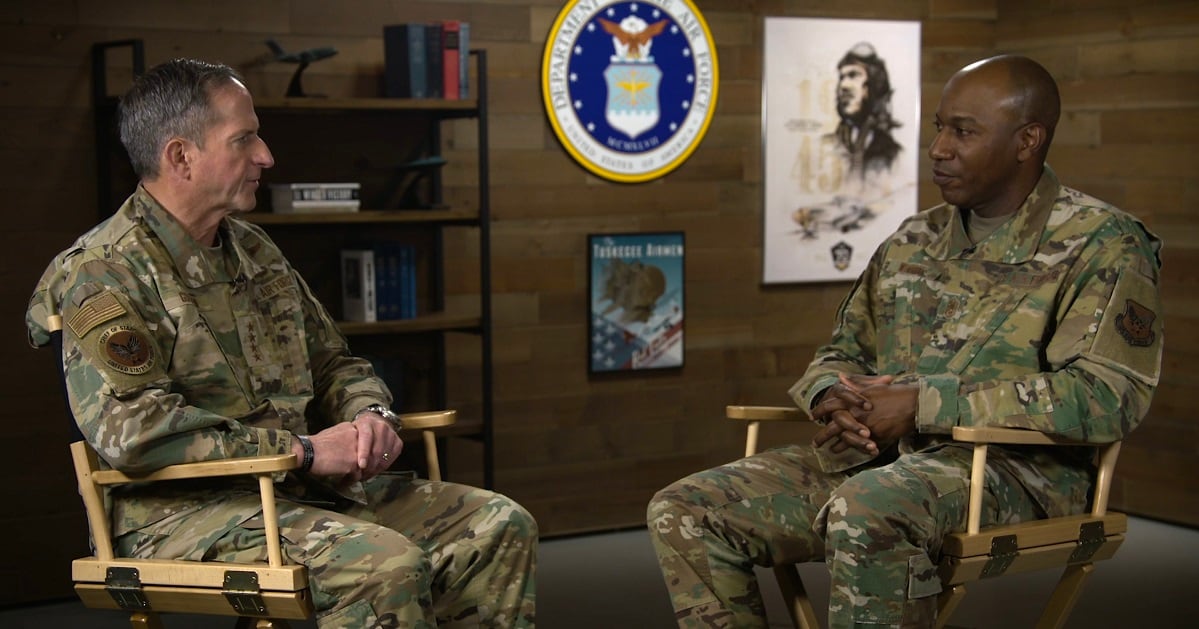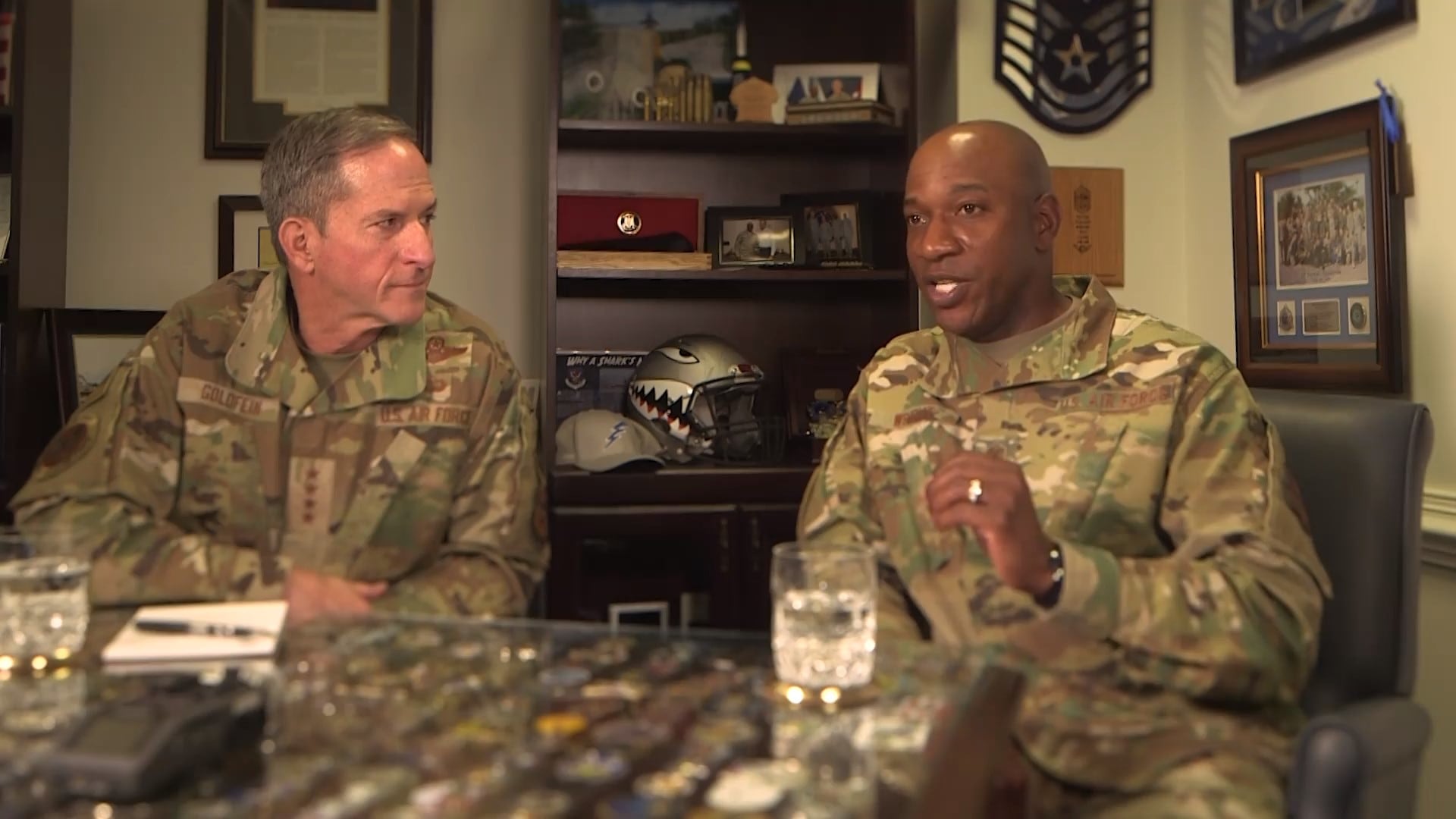[Editor’s note: This is the second of three commentaries by Nathan Dial regarding race relations in the Air Force.]
Over three generations of military service, my grandfather, father and I show the progress and institutional inconsistencies of the United States when it comes to race. The evolution of “The Talk” between Papa Dial, Cortez Dial and I show that Black Americans have more opportunities but still do not have equal opportunity.
“The Talk” is a rite of passage in the Black household, when guardians make their Black teenagers fully aware that they must navigate the world differently because their blackness causes a change in how people with authority implement the rules. “The Talk” is rooted in the reality of the Black guardian’s experiences.
RELATED

My grandfather served in WWII as an enlisted soldier in a segregated military. When he returned to Chicago, he could not vote, use the GI Bill, nor obtain a mortgage if the house was near the miracle mile because of his skin color. His life experience taught him being Black meant he could have life, some liberty and zero justice. Those experiences caused him to explain to his son there are two Americas — and expect less than what is on paper.
Born in 1951, my father went to segregated schools until high school. He experienced white flight when Chicago’s Lindblom High School went from 90 percent white to 90 percent Black by his senior year. He became the first college graduate in our family and commissioned as an Army officer in 1973.
Two years later, Papa Dial visited my father in Germany. When they went through the gate, a white enlisted police member saluted my father and said, “welcome, sir.” My grandfather made my dad go through the gate two more times. After the third time, my grandfather began to cry because he never thought there would be a day when white men would have to salute his son. At that moment, my grandfather experienced progress because he learned being Black was no longer an absolute exclusion from what was on paper.
RELATED

As a military man, my father stressed three principles during “The Talk” with me. Institutions are always right, give utmost respect to people with authority and find white mentors. Being a man who navigated integration, he spent the beginning of his career trying to figure out if he was denied opportunities because of his talent or due to unwritten rules of which he was unaware. Although the regulations provided the path to advancement, he perceived there was a game within the game. Therefore, to have a chance, he needed white advocates because almost all rooms lacked people of color. Therefore, he had the “opportunity” to be what he wanted if he performed and a white superior officer vouched.
The first time I saw my dad cry was my senior year at the U.S. Air Force Academy after the graduation parade. He explained he never thought he would live in a reality where his son was the highest-ranking cadet under a Black president. Through my performance at USAFA and Barack Obama’s election, my dad learned if a Black man had the requisite talent, the system could allow him to reach his full potential.
If I have children, I will use a sports analogy when I give “The Talk:” There are no home games.
In sports, the home team has an advantage because they have the fans’ support and referee deference. There is an understanding that if there is a grey area, the home team will receive the benefit of the doubt. Therefore, to win a competition, the away team must build a substantial lead to ensure the refs do not make a bad call which cost them the game in the final moments. Although Black people can compete in the arena, we must overcome the inevitable bad call rooted in implicit or explicit bias. Normally, the bad call comes from a person who says, “I don’t see color.” Therefore, I ask my white colleagues to Give | Seek | Ask.
Give. Give yourself the grace to be vulnerable. It is OK to admit, I do not have a lot of experience around people of color, and it makes me uncomfortable. We are all human. Therefore no one is perfect. But, we should all work to better ourselves.
Seek. Seek information about the experiences of people of color in your office and community. By gaining knowledge, you will become more comfortable. You can educate yourself through books and documentaries. Afterwards, reflect on your moments of uneasiness with race and challenge yourself to locate the reason behind your discomfort.
Ask. Ask your white colleagues how many experiences they have in mixed-race groups personally and professionally. Through consistent conversations, progress will occur.
Nathan Dial is an active duty Air Force officer and pilot. The views expressed are the personal views of the author and do not represent the official views of the U.S. Air Force or the Department of Defense. If you would like to respond, or have another commentary about the Air Force you would like to submit, contact Editor Kent Miller, kmiller@airforcetimes.com.





